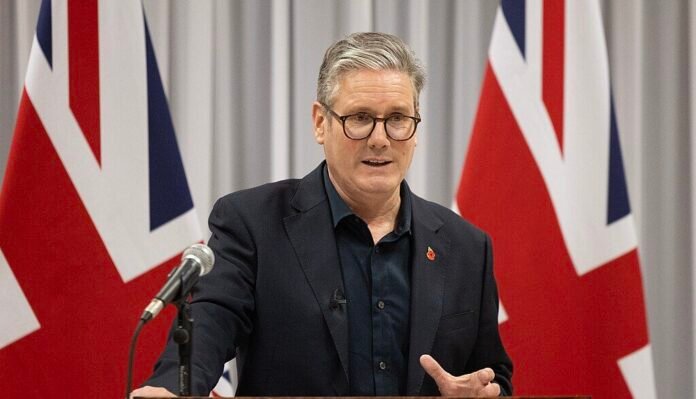PM orders national probe into grooming gangs after backlash; NCA to reopen over 800 cases
Keir Starmer has bowed to mounting political and public pressure by launching a full national investigation into grooming gangs, ordering the National Crime Agency (NCA) to lead a sweeping crackdown on group-based child sexual abuse across the UK.
The move marks a sharp reversal in Labour’s position after months of resistance to calls for a statutory public inquiry. Under the new plan, hundreds of historical cases will be reopened and fresh offenders hunted down, with the NCA leading a coordinated national operation that includes regional police, specialist exploitation teams, and national units like Operation Hydrant.
Home Secretary Yvette Cooper described the long-awaited probe as a chance to finally deliver “truth and justice” to survivors who were repeatedly failed by institutions meant to protect them. “Not enough people listened to them then. That was wrong and unforgivable. We are changing that now,” Cooper declared.
Embed from Getty ImagesThe government confirmed that over 800 previously closed cases have already been reopened since January. Officials say this number will rise significantly as police forces and specialist taskforces intensify their efforts under NCA leadership.
The parallel statutory inquiry, with full legal powers to compel witnesses and access records, follows a rapid review by Dame Louise Casey, who concluded a new probe was necessary. The inquiry will target systemic failures by local councils, police forces, and elected officials who ignored or mishandled complaints of grooming gang abuse for years.
Under the Inquiries Act 2005, the inquiry chair will have authority to order localised “deep-dive” investigations into specific cases, scrutinising allegations of institutional cover-ups and inaction.
Starmer’s government had previously argued that the independent inquiry led by Professor Alexis Jay had already exposed systemic failings, suggesting further investigations were unnecessary. But sustained pressure from across the political spectrum forced a dramatic rethink.
Chancellor Rachel Reeves defended the change in policy, insisting the prime minister wanted to be sure “everything possible was being done” before approving a new inquiry. “This is about justice – not grandstanding,” Reeves told the BBC.
Yet critics were quick to accuse Labour of dragging its feet. Nigel Farage, leader of Reform UK, welcomed the inquiry but slammed the delay, while Conservative leader Kemi Badenoch accused Starmer of wasting six crucial months and demanded an apology.
The Conservatives, along with Farage, several victims’ families, and even Elon Musk, had long called for a full statutory inquiry. In January, Tory MPs tried to force a vote in Parliament to mandate such a probe, but Labour blocked the move at the time.
Labour backbencher Dan Carden was the first within the party to publicly break ranks, urging Starmer to “use the full power of the state” to investigate.
Pressed on whether Labour ministers owed campaigners an apology, Reeves refused to engage, saying only: “The most important thing here is the victims. Not people’s hurt feelings.”
Officials stress that the new approach goes beyond simply jailing offenders, aiming to challenge what ministers now call a longstanding culture of denial in dealing with grooming gangs. The national inquiry will also have oversight over locally led probes, ensuring consistent and thorough investigations across the country.
Meanwhile, the NCA-led criminal operation will continue aggressively targeting known offenders, re-examining prematurely closed cases, and assisting local forces in improving their handling of child sexual exploitation investigations.
“More than 800 grooming gang cases have already been identified after I asked police to review closed cases,” Cooper said. “Now we’re asking the NCA to lead a major nationwide operation to track down more perpetrators and bring them to justice.
